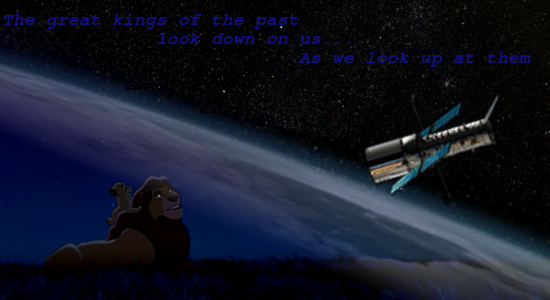Responses below... just food for thought to keep the conversation going. Gonna take Reg to the cleaners. I guess I'm in a really debate-y mood. Especially since I eat meat copiously.
Regulus wrote:There are a few things that I find that rarely get considered in this topic:
Yes, humans are supposed to eat meat. It's not culture; it's biology. Throughout human history, most--if not all--humans have consumed any kind of meat that has been available. Name even just one culture that avoided eating meat of any kind, and there might be some reason to suspect it was just a bad habit that we adopted. But it's not. We evolved to eat meat. That's the end of the story.
This doesn't do much for me. Humans aren't really 'supposed' to eat meat, anymore than we're 'supposed' to do anything. The only thing we evolved to do was keep genes and behaviors that improve fitness. For a long time, eating meat was an essential part of a diet necessary to stay alive and pass on genes. That is no longer the case, as you can have a perfectly healthy diet without meat, so our biology couldn't care less about whether we eat meat or not.
Farming only vegetables is often said to be a more efficient way of feeding the human population... except no, it's not. Calorie for calorie, meat can be as efficient, if not more efficient than a purely vegetable based diet. It's true that it takes fewer resources to make a pound of beans compared to a pound of beef--but that beef contains way more calories and way more nutrients.
I'd be interested to see your sources about the energy/resource efficiency on a per calorie/per unit of meaningful nutritional content basis. A cursory google revealed lots of conflicting results, but I confess I didn't spend the time to come to a conclusion for myself. Gem had some interesting points earlier on in the topic too.
I have heard vegans say that our meat consumption is the main cause of climate change. Except, again, this is just simply wrong. Agriculture, in total, accounts for only around 10% of our total greenhouse gas emissions. It's a very, very small amount in the grand scheme of things. And sure, you could say that methane is a worse greenhouse gas than carbon dioxide is... and that's not necessarily wrong. But methane is only in the atmosphere for 10 years, compared to the 100 or more of carbon dioxide. The long term effects are different. You can't compare eating more bananas and broccoli to driving a Prius.
No, it is not the #1 factor. However, 10% of a huge problem does not qualify as 'very very small' in my opinion. Drug costs are less than 10% of US health spending, but that doesn't mean their cost isn't a massive issue. While methane's life in the atmosphere is shorter, it's subjective to say that fact outweighs the fact that it's many times more powerful. Besides, unless I'm mistaken, the effects it would have more broadly (i.e. through feedback systems such as increasing temperatures temperatures, leading to a higher concentration of water vapor) are likely to extend beyond that decade, no?
Furthermore, as DGFone pointed out, organic farming isn't sustainable. If we all agree to only buy organic, there will not be enough food for everyone. GMOs and factory farming allow us to produce more food than we really need--which should be a good thing. It is devastating to the environment, but that's really more of a result of the politics of it rather than the science itself.
I would need to learn more about what 'organic' even means, but I agree. I support GMO big time, but factory farming and treatment of animals in them likely has enough nuance to merit discussion.
I'd also like to end this by saying that meat isn't even unhealthy. Humans have been eating meat for tens, if not hundreds of thousands of years. Those who lived in early human civilizations didn't opt for low fat diets or organic veggie taco burgers over a nice grilled steak. Ancient humans ate animals, and they ate or used every part of the animal, including the fat, feet, and organs.
While meat isn't unhealthy, "We've always done it" and "Our ancestors thousands of years ago did it" don't do much for me. Our ancestors thousands of years ago lived to the ripe ages of what, 30? I can name an awful lot of bad habits we can justify if the criteria is "Ancient humans did this too."
Of course you can always argue that factory farming is unethical--and it clearly is--but don't we have bigger problems too? What about that T-shirt you're wearing that was made by child slaves in Vietnam? Or, what about the iPhone you're using that was assembled by poor-ass workers in Taiwan who would be happy to make more than 10 cents in a day? To me, factory farming is one of those things that we just have to ignore for now. Not because it isn't wrong, but because thinking about it makes you realize how depressing the world really is. There are so many injustices we should be worry about, but it's out of sight and out of mind for the most part.
Problems can coexist, and shying away from problems because "there's a bigger fish" seems counterproductive. Yes, there are ethnic cleansings taking place in Myanmar, but that doesn't mean your local soup kitchen should close its doors. Similarly, I the fact that there are bad labor conditions in Vietnam and Taiwan shouldn't prevent someone from taking simple steps to improve the sustainability of their diet. The way I see it, simply changing our consumption preferences (assuming price/geographic accessibility, granted), we can incentivize a relatively painless market transition towards more sustainable meats.



